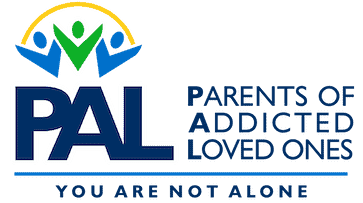
If you spend any time around addiction recovery circles you are bound to hear a lot of recovery lingo. Mottos, sayings, and acronyms abound – and for good reason. These sayings are tremendously wise and pack helpful tools and perspectives into short memorable sayings that are easy to recall in a moment of stress. These indispensable tools are tried and true slices of hard-earned wisdom from those that came this way before us. For good examples of some of these sayings take a few minutes to search “The Alanon Slogans” or stop by an open AA meeting, the walls will likely be adorned with some common recovery sayings, and you will hear them referenced many times in each meeting.
One of the sayings used often by parents of addicts is that they are learning to “detach with love.” Many parents new to recovery ask about this term when they first hear it. For some, detaching sounds like a great relief after years of hanging on by a thread, tied to their child’s choices. For some parents the idea strikes fear, or even anger and sounds like giving up or severing their connection to their child.
Let’s explore the idea a bit.
There are countless success stories from parents who have improved their overall happiness and peace by applying this concept in the following ways: First, they reach an understanding that detaching with love does not mean caring less or giving up on their child. The parent-child relationship is like no other, our job is to care for them and keep them safe until they can do so on their own. There is no other love like it. The instinct to protect and even to place their well-being above ours is natural and healthy. It is our job! This, however, can go too far. I often use the example that keeping junior from walking into traffic as a toddler is different than keeping junior from facing the consequences of his actions when he gets caught with drugs in high school. When children are young, they rely on parents to be directly involved in most of their decisions because they cannot possibly understand or cope with the consequences. As they grow up the parent must begin to let go of this responsibility and give it to the child allowing them to learn to navigate the world on their own. Eventually allowing them the responsibility for ALL their decisions. This means allowing them to experience the natural consequences, both positive and negative, resulting from their choices.
However, most addicts begin their use when they are teenagers, a time when it is already difficult to decide how much independence is appropriate. Fearful parents witness poor choices and decide to keep the responsibility for themselves. This opens the door to a cycle of protecting their older/adult child from consequences, trying to control their child’s choices, and feeling guilty or worried because they think their child’s choices are due to their own mistakes as a parent. Once these patterns set in, they get entrenched quickly and deeply, which is how many parents end up in a long messy dynamic with their addicted children.
Detaching with love does not mean – withdrawing love, giving up, caring less, never worrying about, or abandoning the child.
Detaching with love does mean – accepting that they cannot control their child’s choices or the consequences of their child’s decisions, accepting that their roles have changed, and letting go and letting God. This also means allowing them to grow up in whatever way they choose to do so even if it is messy, turning the focus inward, and respecting the child’s right to be where they are.
Again, for some parents this new perspective will be welcomed as a long overdue change bringing relief in the knowing that they do not need to stay on the turbulent path their child is on. For others this will be a difficult perspective to implement. For those of you who feel the latter please remember another recovery mantra “progress not perfection” just “keep coming back” to your meetings and you will find yourself growing.
Josh Azevedo is a guest blogger for PAL and is the Executive Director at The Pathway Program, https://thepathwayprogram.com
